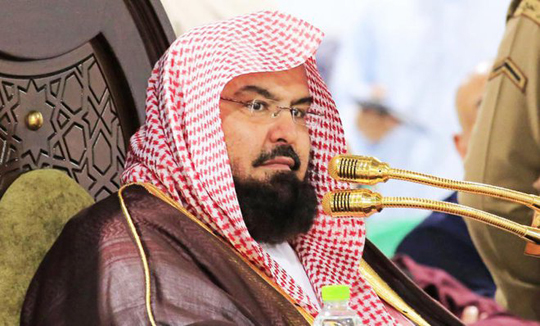Jeddah, Sep 16: Presidency of the Two Holy Mosques chief Abdul Rahman Al-Sudais said this year’s Haj was a success and “the presidency was able to implement its plans and measures for the Haj season this year, which contributed to making the performance of the Haj rituals easy and comfortable.”

He said the presidency had come up with a package of measures and procedures in preparation for the Haj season this year, meant to address issues like receiving pilgrims and ensuring that all services and facilities are in place for them to perform the Haj.
He said the Mataf area was prepared to absorb as many pilgrims as possible, thus allowing for a successful and easy tawaf and sa’ee.
Pilgrims also benefited from the expansion of the northern spaces and other floors, which enabled them to perform the rites and rituals smoothly and successfully.
Al-Sudais praised the 24-hour guidance program and the Commission for the Promotion of Virtue and the Prevention of Vice, which distributed millions of guidance booklets and awareness pamphlets around the Grand Mosque, and had words of praise for other services, such as provision of air conditioning, lighting, cleaning services, zamzam water, and services for people with special needs.
Al-Sudais thanked the employees of the presidency who performed their jobs responsibly and contributed to the success of the Haj this year, as well as other authorities involved in the pilgrimage, such as the Ministry of Interior, Makkah municipality, the Civil Defense, the Ministry of Haj and Umrah, the Red Crescent and the Makkah governorate.
He prayed to Allah to protect Custodian of the Two Holy Mosques King Salman, Crown Prince Mohammed bin Naif, Deputy Crown Prince Mohammed bin Salman, Makkah Gov. Prince Khaled Al-Faisal, Madinah Gov. Prince Faisal bin Salman as well as Muslims around the world.




Comments
Add new comment